THE SPEAKERS A-Z
Amber Allen

Amber Allen is a distinguished speech pathologist with a decade of experience, renowned for her commitment to addressing language and literacy disparities in Australia’s healthcare system. As the owner of a multidisciplinary allied health practice, Amber has dedicated her career to identifying and treating language disorders, particularly among marginalised populations.
Her passion for social justice was ignited upon uncovering the startling statistic that 90% of children within Australia’s juvenile detention system suffer from undiagnosed language disorders. This revelation became the catalyst for her unwavering commitment to enact meaningful change.
In her tireless pursuit of equality, Amber has developed innovative strategies to bridge the language gap in healthcare. She has spearheaded initiatives to ensure comprehensive language assessments can become accessible for all community members, ensuring early identification and intervention for at-risk youth. Additionally, she has advocated for increased training and resources for healthcare professionals to recognise and accommodate patients with diverse language needs.
Communication and At Risk Youth
Amber Allen’s presentation is a watershed moment in the discourse surrounding language gaps in Australian healthcare. Through meticulous research and firsthand experience, she illuminates the pervasive disparities that hinder effective communication and how this can impact outcomes for at-risk youth caught in the legal system.
Central to her presentation are five actionable solutions aimed at bridging the language gap and ensuring equitable access to healthcare & education. These include implementing mandatory language assessments, providing professional development training for local law enforcement agencies, fostering cultural competency training for healthcare professionals/teachers/solicitors/police officers etc, creating accessible client education materials, and establishing community outreach programs to promote health literacy.
By proposing these solutions, Amber not only highlights the critical importance of addressing language disparities but also offers a roadmap for tangible change. Her presentation serves as a rallying cry for stakeholders across the healthcare spectrum to prioritise linguistic inclusivity and dismantle barriers to care and support.
Judy Atkinson
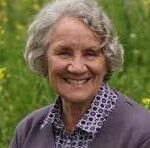
Emeritus Professor Judy Atkinson AM: PhD. has Jiman – Bundjalung and Anglo-Celtic heritage. Her work focuses on healing the traumatic legacies of colonisation, across its generational impacts. Since retiring as Professor and Head of the College of Indigenous Australian Peoples at Southern Cross University, Judy has worked in all Australian states and territories, as well as Papua New Guinea and Timor Leste, using deep culture within an educaring approach, from its original meaning – ‘a return to wholeness’. While working with youth in detention and women in prison, she advocates for healing programs using music art and story in reconstruction of the Self, the truth teller and the healer.
Youth our Future:
Listening Learning Working – Changing the World – Together.
Youth Justice means being willing to listen and learn while working together with youth, to help open different pathways for their future. Working specifically with Aboriginal youth means seeing the generational Injustice of Aboriginal lives and taking the courage to look deeply into the soul of a nation, mirrored in the behaviour of our young people today. In the words of Bill Walker and Margaret Hayes, Prevention not Detention requires using the knowledge and skills to build programs, as we learn from our youth what they need to change the worlds which they have inherited.
Kylie and Simon Beck

Kylie and Simon Beck are adoptive parents who were not made aware of the difficulties that their children would be struggling with as they grew up. It was only when one of the children was diagnosed with FASD that they discovered the support network that they had been looking for. A diagnosis can be life changing and helpful to everyone in the family.
Lorana Bartels

Lorana Bartels (BA LLB LLM PhD GDLP GCTE) is a Professor of Criminology at the Australian National University and Adjunct Professor of Law at the University of Canberra and University of Tasmania. She has also held visiting positions at the University of Cambridge and London School of Economics.
Lorana is a Fellow of the Australian Academy of Law and Associate Member of the Australian ADHD Professionals Association. She is a Director of the Justice Reform Initiative. She is a board member of the Murrumbidgee School at ACT Bimberi Youth Detention Centre and the Connections School, a small school being established in Canberra to meet the needs of neurodivergent young people. She is also a member of ACT Government’s Domestic Violence Prevention Council Advisory Group and Minimum Age of Criminal Responsibility Reference Group and the editorial boards of five law and criminology journals.
Her key research interests include the courts and correctional systems, disability justice, family and sexual violence and the treatment of Indigenous, young people and women in the criminal justice system. Lorana has published five books and over 125 peer-reviewed journal articles and book chapters. She has also undertaken consultancy projects on behalf of the ACT, Commonwealth, Queensland, Tasmanian and Victorian governments.
ADHD and youth justice: Moving from deficit to neurodivergent-affirming
Attention Deficit Hyperactivity Disorder (ADHD) is the most common neurodevelopmental disorder in children and adolescents. People with ADHD often have difficulties with focusing and sustaining attention, as well as hyperactive and impulsive symptoms. However, they also have many strengths, such as problem-solving-skills, adventurousness, and creativity. ADHD is associated with increased of substance use, accidental injuries, school exclusion, justice involvement, unemployment, gambling, teenage pregnancy, and family violence perpetration and victimisation. Despite this, there are many myths and misunderstandings about the conditions. There is also often little understanding of and focus on ADHD diagnosis, treatment and support in schools, healthcare and the children protection and youth justice systems.
This paper will draw on recent research, inquiries and the guideline for people with ADHD to outline approaches that will support young people with confirmed or suspected ADHD at all stages of justice system involvement. The paper will also highlight the need for specific approaches that address the culture- and gender-specific needs of Indigenous young people and girls. The paper will call for additional training and resourcing, to implement a model that is neurodivergent-affirming. Doing so will yield significant benefits for individuals, their families, the professionals who work with them and society as a whole.
Kate Bjur
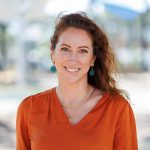
Kate Bjur has over 25 years’ experience working with and on behalf of children and young people in Japan, Canada, England and Australia. Her experience includes youth detention senior leadership, restorative justice, youth justice strategy and legislation, child safety policy, early childhood education, youth advocacy and family work.
In 2023, Kate travelled around the world as part of a Churchill Fellowship project investigating best practice in youth crime prevention, gang exit strategies and therapeutic models of youth detention.
Abstract:
In February and March 2023, Kate Bjur travelled to six countries and visited over 20 secure settings for young people as part of a Churchill Fellowship. In this presentation, Kate describes the common elements of the most successful youth detention centres she visited. Success is defined in many ways, including reduced offending after release, safer environments for young people and staff, higher staff retention and young people’s increased connection to their families and the broader community.
Examples of best contemporary practice include New York City’s Close to Home Initiative, Spain’s Diagrama Re-education Centres, Denmark’s Youth Detention Centres and the State of Missouri’s Division of Youth Services’ Missouri Model. Based on the common features of these models, Kate will present a vision for therapeutic youth detention that includes elements such as change-oriented programming, engaging young people in meaningful activity, family therapy and leaves of absence for the purpose of reintegration.
Lisa Butcher

Lisa Butcher is a Clinical Psychologist specializing in adolescent mental health. She has a background of working with Autism Spectrum Australia (Aspect), Headspace (both Grafton and Coffs Harbour centres) and currently Youth Justice (Department of Communities and Justice, DCJ), as well as her own private practice, Patronus Psychology. Lisa has her own podcast, “Psych on the Mic” where she speaks candidly about her personal and professional experiences to reduce stigma around mental health.
Coming from a childhood education of Rudolf Steiner, as well as being brought up immersed in music as a 5th generation musician, Lisa combines her psychological expertise with her creative interests to engage the young people she works with, often using music as a tool to regulate emotion and to establish and maintain rapport. As a survivor of bullying throughout her schooling, Lisa understands the importance of young people receiving the right care and support to thrive as well as the opportunity to be heard and understood by someone external to their familial and peer systems.
Lisa holds a Bachelor of Honours (First Class) and Master of Psychology (Clinical) through the University of New England (Armidale, NSW). Lisa recently completed her Graduate Certificate in the Assessment and Diagnosis of Fetal Alcohol Spectrum Disorder (FASD) through the University of Western Australia (UWA) and has diagnosed a number of young people with FASD, enabling them to have crucial access to supports through the National Disability Insurance Scheme (NDIS) as well as financial support through the Disability Support Pension (DSP).
Prevention and Youth Justice
Lisa’s talk at the conference will be a sharing of her ideas about the importance of early detection and intervention in preventing youth from ever being in touch with the criminal justice system. Lisa will highlight the importance of providing education about FASD in community settings to raise much needed awareness so that teachers, parents, carers, case workers and health professionals, etc. can identify possible causes behind symptoms that are often displayed as problematic behaviors. Lisa will discuss possible pathways to assessment, diagnosis and intervention. Her presentation will finish with a performance of an original song highlighting the importance of giving young people a voice.
Mark Cartner
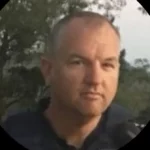
Senior Constable Cartner is a police officer with 25 years of experience. In 2003 he commenced working in the (at the time) Juvenile Aid Bureau. For the next twelve years S/Con Cartner worked as a child abuse investigator in Cairns, Cape York communities and Bundaberg. He also volunteered his time running youth groups developing the capacities of young people through expedition based learning. During this time the idea of a program combining outdoor education with child protection skills was conceived. In 2015 S/Con Cartner took a position as a school based police officer to put his understanding and theories of child protection and crime prevention to the test.
Since that time Mark has put his energies into running a program for youth that is a mix of evidence based therapeutic practice, indigenous knowledge, vocational skills training, and outdoor recreation. The primary purpose of this program is to engage students who were disenfranchised from the system and in danger of entering the juvenile justice system as well as assisting students who have child protection needs. This remains an important part of this program, however it has expanded to incorporate leadership training and allowing senior students to undertake a mentor role with junior students.
In 2023 the Police discontinued this program after 8 years of development. This presentation will examine barriers to such programs and ways to continue advocating for change.
Michelle Cowan
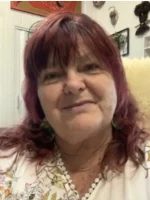
My name is Michelle (Shelle) Cowan. I am an Aboriginal woman from Gumbaynggirr and Bundjalung Country. I carry this Heritage with great pride and absolute respect to my Elders, past, present, and emerging.
I am an Aboriginal Specialist Trauma Counsellor with a Qualifying Master’s degree in Human and Community Services-Interpersonal Trauma Stream. I am an Accredited Clinical Supervisor with ACA, a qualified Aboriginal Practitioner, Internal Family System Therapy Counsellor, and I am an appointed Counsellor for Victims Services. I am a founding facilitator of VoiceUp Australia. I am in Private Practice in Grafton NSW.
I have designed a visual presentation that will help to understand the complexity of Aboriginal trauma that relates to transgenerational and intergenerational effects. I have coupled this with obligations and expectations of living in a combined world and how to use this understanding to help my people.
After a lifetime of adverse experiences, I want to share this knowledge to help explain and understand the complexities of trauma behaviours, and the responses relating to intergenerational trauma in our lives. I often feel so frustrated that young Aboriginal children, young people, and adults are imprisoned at the world’s highest rates This is just not acceptable. Past events continue to impact many Indigenous families and communities today.
Maddy Crowe

Belle Arnold is a proud Wakka Wakka woman living on Bundjalung Country, and Maddy Crowe is proudly Wiradjuri living in Naarm on Wurundjeri Country. Belle and Maddy are working at SNAICC – National Voice for our Children to develop the National Aboriginal and Torres Strait Islander Family Safety Plan (Family Safety Plan). SNAICC – National Voice for our Children is a national peak body Aboriginal community-controlled organisation that works to improve outcomes and opportunities for Aboriginal and Torres Strait Islander children and strengthen the capacities of families across Australia.
Our Ways – Strong Ways – Our Voices: National Aboriginal and Torres Strait Islander Family Safety Plan Engagement
The Family Safety Plan is intended to increase the safety and wellbeing of Aboriginal and Torres Strait Islander women and children by setting the future direction of all government action in the family, domestic and sexual violence service system. We acknowledge that the experiences and impacts of family violence leads to increased and intergenerational contact with the criminal justice system. Many incarcerated Aboriginal and Torres Strait Islander women and girls have experience of family, domestic or sexual violence. In this session we are hoping to hear from you about how the Family Safety Plan could address areas such as justice, children and young people, trauma, and FASD and disability to ensure it represents the needs of all Aboriginal and Torres Strait Islander families.
Sharon Dawe
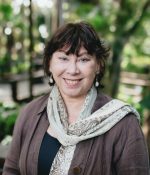
Sharon Dawe is a Professor in Clinical Psychology at Griffith University, Australia, an Adjunct Professor at Australian Centre for Child Protection (UniSA), and a Visiting Fellow at Oxford University, UK. She has been working as a researcher and clinician in the field of substance misuse and mental health for over 30 years at the Institute of Psychiatry, University of London (UK), National Drug and Alcohol Research Centre, UNSW and currently Griffith University. She is the co-developer of the Parents Under Pressure program (www.pupprogram.net.au), designed for complex families that includes parental substance misuse. She has expertise in neurodevelopmental disorders with a focus on FASD and leads a large consortium focusing on diagnosis and support of young children with prenatal alcohol exposure. Sharon is passionate about improving the outcomes for children living in adverse circumstances by supporting parents to manage difficult life situations.
The potential promise of early identification and support for young children with prenatal alcohol exposure: changing trajectories and changing lives.
The consequences for children born with birth defects and developmental disabilities encompassed by Fetal Alcohol Spectrum Disorder (FASD) are profound, affecting all areas of social, behavioural and cognitive functioning. For many years the traditional view has been that diagnostic assessment cannot be undertaken before the age of seven. However, while there are many challenges in assessing younger children, we have developed a robust protocol that allows for a comprehensive assessment of children aged 3 – 7 years. We have been running a diagnostic clinic since 2018 and in that time assessed over 200 children. The assessments are time intensive and can demanding for very young children, so we have developed a shorter protocol that, on initial analysis, has good diagnostic concordance with the longer assessment. Which is great news but still leaves us all with the concern about the utility of this process when our understanding of the treatment and early intervention options for young children is so limited. There are many reasons to propose that support and early intervention will result in improvements in children’s outcomes but the mechanisms underpinning potential change are many and varied. Our science desperately needs to advance quickly but in the interim we need to use an evidence-informed approach to support young children and their families.
Georgina Dimopoulos

Dr Georgina Dimopoulos is an Australian lawyer and legal academic. She is a Senior Lecturer, Law and a Research Associate, Centre for Children and Young People at Southern Cross University. Georgina is experienced in legal and policy evaluation, and doctrinal, qualitative and empirical research, across the areas of family law, children’s rights, privacy and family violence.
Georgina’s research has been published in leading Australian and international peer reviewed journals. Her first monograph, Decisional Privacy and the Rights of the Child (Routledge, 2022), presents a new model for enabling and listening to children’s voices in decision-making processes. Georgina is a member of the Policy Working Group of the Australian Child Rights Taskforce. Georgina was admitted to legal practice in 2010 and practised at Allens Arthur Robinson (now Allens Linklaters).
She has worked as a Senior Associate to a Justice of the Supreme Court of Victoria, a Senior Legal Policy Officer at the Victorian Department of Justice and Community Safety, and a Research Fellow in the Family Law, Family Violence and Elder Abuse team at the Australian Institute of Family Studies. She has also been engaged as a legal consultant to the Victorian Family Law Pathways Network and Women with Disabilities Victoria.
Georgina holds a PhD in Law, a Bachelor of Laws (First Class Honours) and a Bachelor of Arts (Media and Communications), from the University of Melbourne
Children’s Voices for Change
To address the intergenerational impacts of family violence, including preventing future victimisation and the perpetration of family violence by victim-survivors themselves, there is a pressing need to better understand whether and how family violence services are meeting the needs of children as victim-survivors in their own right. This presentation will showcase findings from the ‘Children’s Voices for Change’ project, funded by the Victorian Government, which engaged children and young people as family violence experts by experience, to enhance our collective understanding of the diversity and distinctiveness of children’s experiences of family violence, and the effectiveness of services in meeting their needs.
Elizabeth Elliott

Professor Elizabeth Elliott AM FAHMS FRSN is a Professor of Paediatrics and Child Health at the University of Sydney and Consultant Paediatrician and Head of the NSW FASD assessment service at the Children’s Hospital at Westmead. She led development of the Australian Guide to the Diagnosis of FASD and leads the FASD Hub Australia, national surveillance, and the FASD Australian registry. She was involved in developing resources for the national awareness campaign (Every Moment Matters) and for primary school educators (Learning with FASD) and early childhood educators (Through Different Eyes) and in advocacy for pregnancy warning labels on alcohol. She is an NHMRC Leadership Fellow and her research into FASD includes work with remote Aboriginal communities. She chairs the Australian government’s National FASD Advisory Group and is a Director on the Board of the National Organisation for FASD (NOFASD) Australia.
FASD and Youth Justice in Australia
Fetal Alcohol Spectrum Disorder (FASD) results from prenatal exposure to alcohol and is associated with severe neurodevelopmental problems that have lifelong impacts on health and education and frequently lead to contact with the justice system. The diagnostic process, characteristics, and prevalence of FASD in Australia, including in the justice system, will be presented.
The cognitive, communication and behavioural challenges experienced by individuals with FASD will be outlined, and used to explain the common pathways from FASD to the child protection and justice systems.
Strategies both to assist youth negotiate the justice system and to prevent justice contact and incarceration will be described, as will opportunities for educating and upskilling justice professionals to increase understanding and management of individuals with FASD.
Sophie Harrington
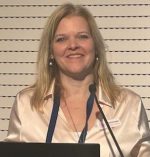
Sophie is the Chief Operating Officer for NOFASD Australia. Sophie has held positions in frontline services and senior management, across a range of sectors to include alcohol and other drugs, out of home care and justice, providing services to multiple young people and families impacted by FASD.
Sophie is a FASD educator and coordinator of NOFASD’s lived experience expert advisory groups. She is a member of the Steering Committees for the National FASD Awareness Campaign and the FASD Diagnostic Guideline Review, as well as the FASD Hub Advisory Committee.
Sophie has lived experience of FASD.
FASD informed in Western Australia
Young people living with Fetal Alcohol Spectrum Disorders or FASD are 19 times more likely to be incarcerated. Validated research released in 2018, identified a prevalence of FASD in 36% of the population of the juvenile detention centre in Western Australia.
In order for interventions and support strategies to be successfully implemented in a custodial setting, it is essential that all personnel involved within the justice system are FASD-aware and FASD-informed.
This presentation will discuss:
The parallels between criminogenic risk factors and the brain-based impacts and secondary conditions associated with FASD, and
Effective strategies to promote better understanding and accommodations for young people with FASD in a custodial setting.
Margaret Hayes
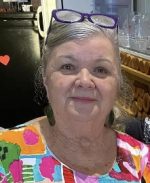
Margaret Hayes started her career in 1974 teaching at a selective girls’ high school in Sydney. She was a school principal from 1998, at the Bonalbo Central School, where she ran an alternative learning program in the Tabulam community for a year in order to improve the transition processes to Bonalbo Central. She was the principal of Nimbin Central School for 7 years and principal of Casino Public School for 4 years.
Margaret then spent 12 years as principal at the Barwon Learning Centre in Moree, a school for specific purposes – for students whose behaviour interferes with their learning or the learning of others. She is a passionate advocate for trauma-informed schools and the value of Culture.
Margaret will be speaking about “Moving Schools from Punitive Strategies to Reparative Strategies: The need for trauma-informed schools.”
Todd Heard & Damian Spohr
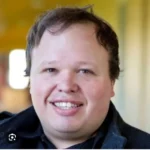
Todd Heard is a Proud Wonnarua Man. Principal Aboriginal Clinical Psychologist and Specialist Behaviour Support Practitioner.
Has worked in the specialist Aboriginal adolescent mental health service for much of his career, supporting complex Aboriginal children, young people, families, and communities who are at risk. Currently the Principal Director of We Care NSW, which is an Aboriginal Organisation providing NDIS, Allied Health and Child and Family services across NSW. Todd and his team of Allied Health and Disability Support Workers have been committed to supporting young people connected with the criminal justice system to prevent re-offending behaviours.
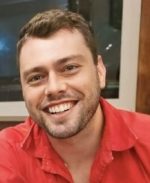
Damian Spohr is a Clinical Social Worker and Senior Manager for We Care NSW in the Child and Family services. Current Chair of the NSW Permanency Reform Group for Children in Out of Home Care. Currently on the Family is Culture steering committee for better outcomes for Aboriginal children and families in the out of home care space. Has specialised in Child protection and mental health for the last 10 years, including executive roles for major organisations in the community services industry.
How NDIS and We CARE can prevent young people going into detention
Our presentation will focus on a holistic, biopsychosocial approach that is centred on attachment and connection as foundational elements for healing from past adverse experience, and mitigating risk factors of interaction with criminal justice systems. This includes timely access to clinical assessment and formulation, which can then be used as a guide for clinical treatment from a medical and health perspective, in addition to connection and attachment to positive kinship, community and role models. Creating positive identity through kinship, connection, and culture to provide opportunities and narratives that don’t include detention or the criminal justice system.
David Heilpern
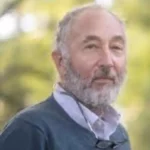
David Heilpern was appointed as a Magistrate in 1998, and was at the time the youngest magistrate in Australia. He ‘retired’ in May 2020. He sat in the criminal, mining, family, industrial, coronial and children’s jurisdictions of the Local Court, and was the Senior Civil Magistrate for five years. During his time on the bench, David was the principal educator for new magistrates throughout Australia and the Pacific and made several important reported decisions on criminal, environmental and evidence law.
Prior to his appointment, David was a litigation lawyer on the North Coast where he co-founded the law school at Southern Cross University in 1992, subsequently teaching in a range of subjects including constitutional law, criminal law and procedure and contracts. At the time, it was the first non-metropolitan law school in
Australia.
David maintained a litigation practice throughout this time, representing a wide range of defendants. During this time David graduated with a Masters in Law from SCU and was pronounced the Alumni of the Decade for the University in 2005. In August 2022, David was appointed as a Dean and Head of Discipline (Law) at SCU and his writing and research is now focussed on judicial education, drug law reform, aboriginal overrepresentation in the criminal justice system and environmental activism.
David is going to speak about the overrepresentation of First Nations children in detention, particularly the issue of remand. He will also speak about the overlaps with the failure to close the gap in other areas, and the Queensland and New South Wales recent overblown “crime wave” obsession.
Terry Hutchinson
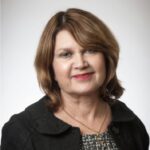
Dr Terry Hutchinson (PhD, BA LLB, MLP, Dip Lib, Grad Dip Legal Practice) was admitted as a solicitor of the Supreme Court of Queensland in 1985 and is currently an Adjunct Professor at Southern Cross University. Prior to this, she taught in the Law Faculty at QUT 1987-2016. Dr Hutchinson’s research revolves around a sound use of the evidence base, particularly in relation to children and youth justice. Most recently she completed an Australian Institute of Criminology project on the use of video links with young people in detention in Queensland. Dr Hutchinson served as a full-time member of the Queensland Law Reform Commission and took part in the Queensland Department of Justice Stakeholder Advisory Group transitioning 17-year-olds to the youth justice system. She is a member of the Queensland Childrens Court Committee, the Queensland Law Society’s Childrens Committee, and the Youth Advocacy Centre (YAC) Management Committee. She has been an active campaigner in the youth justice space in Queensland for the last two decades. Dr Hutchinson also publishes extensively on legal research methodologies. She was Editor in Chief of the peer reviewed Legal Education Review for several years and remains a member of the journal’s Advisory Board.
Youth Justice in Queensland 2024
In Queensland, youth justice legislation tends to be in constant flux, with frequent amendments. The reason for this is that the area is highly politicised. Every state election seems to have an undercurrent of the conservative Tough on Crime agenda. While community safety is a vital concern of both the politicians, the courts, and the police, and while there is an acceptance that ‘every citizen has a right to feel safe in their own home’, the statistics are frequently at odds with the public discourse. The politicians generally (spurred on by the media and a vocal punitive public voice) require a ‘quick fix’ involving simplistic measures. However, it is evident that the most serious offenders, the children who are in detention, are themselves some of the most disadvantaged children in the state.
Garry Kafoa
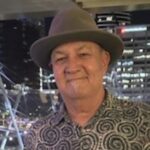
My name is Garry Kafoa, I am a proud Minjungbal man from the banks of the Tweed River. My father was a local tribal elder. I was born and bred by the river and my father was a traditional Aboriginal / Torres Strait Islander fisherman, so I was born into that life, pristine water, a healthy echo system where we only took what we needed. I was taught respect and to not judge and to always look after country and like my father I also spent 29 years as a professional fisherman.
I have always lived by my culture, a culture that was taught to me by elders from a very young age. I come from a musical family and at an early age I began to learn to understand how powerful music can be. To be able to play music, to sing and play Didgeridoo and different instruments and to have the opportunity to write music and songs that were connected to the stories that were passed down to me and to contemporary issues that affect us all.
To be able to tell a story through dance to traditional music is so important to wellbeing. In the last 11 years I have worked with Aboriginal and Torres Strait people in my community. In that time, I worked in Disability and in 2013, I was Ambassador for Aboriginal People with Disabilities. In 2014, I received an award for Achievement in my field. In 2021, I was Ambassador for the Leukemia Foundation. I have a connection with the Leukemia Foundation having had a Bone Marrow Transplant in 2000.
In 2016, I worked as an Aboriginal and Torres Strait Islander Drug and Alcohol Wellbeing Case Worker and in 2019, I became the Aboriginal and Torres Strait Islander Project Officer and Adviser for a company where I deliver many different Aboriginal and Torres Strait Islander education training sessions.
In 2022 I started working with the Mackillop Institute in partnership with my current company as an Aboriginal and Torres Strait Islander Trainer which takes me to many places in Australia. In 2021, I penned and recorded the song Reconciliation which gained national airplay and was chosen as the feature song on the 2021 Indigitube, AMRAP, CD. There are 8 Aboriginal and Torres Strait Islander artists whose musical works are chosen nationwide. In 2024, I penned a song for the Bunyarabugalma Youth Wellbeing APP, I believe if our youth have strong spirit then our community will have strong spirit and the APP goes a long way in helping our youth achieve this. The song entitled Connected was written in collaboration with Aboriginal Youth and lets them tell a part of their story.
The Kinship Doobai Dancers

Kinship Doobai Dancers are a contemporary women’s dance group based in Murwillumbah made up of Minyungbal, and broader Bundjualung Dubay, Wirandjuri and Wakka Wakka women. Connected through family and kinship, the Kinship Doobai Dancers are proud to continue culture through to the next generation. The Kinship Doobai Dancers tell traditional and contemporary stories of culture through song and dance. They bring their shared cultural knowledge and are led by local Elders to care for Country, community, and Culture.
Mansfield Mela
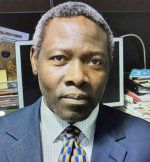
Dr. Mansfield Mela (MBBS, FWACP, MSc Psych, FRCPC), Professor, Department of Psychiatry, University of Saskatchewan, is an academic forensic psychiatrist and a Founder of the forensic subspecialty in Canada. He is also the current director of the Centre for Forensic Behavioural Science and Justice Studies at the University of Saskatchewan. As an expert, he testifies on various aspects of the interface of law and psychiatry. These include criminal and civil matters.
He is an associate faculty member of the College of Law at the University of Saskatchewan and teaches medical and law undergraduate and postgraduate students. He is the co-Lead of the patient-oriented research hub in forensic mental health in Saskatchewan. He is a member of the Saskatchewan Review Board and the Saskatchewan Physician Health program. He is the vice Chair of the Forensic Research Network and was a pioneer member and lead of the interdisciplinary research team of academic professionals in forensic mental health research in the University of Saskatchewan. His research focuses on psycho-legal implications of cognitive deficits with specific interests and expertise in the area of fetal alcohol spectrum disorder (FASD). He is a lead researcher with Canada FASD research network (CanFASD).
Reducing victimization and improving patient outcomes especially among the vulnerable, form the foundation of his clinical and scholarly activities.
FASD-informed Youth Justice
At least one of every three individuals interacting with any multidisciplinary professional in the youth criminal justice system is diagnosed or diagnosable with FASD. While displaying brain-based behaviours, these individuals are easily misunderstood and misinterpreted as deliberately rule breaking. Unfortunately, the resulting consequences are aligned with the traditional assumptions of the overall criminal justice system used for neurotypical individuals. Such measures perpetuate the ineffective approach of using longer sentences and stiffer restrictions to respond to the needs of youth with FASD.
To minimize the victimization that is experienced by undiagnosed persons a system revamp is necessary. An FASD informed environment is created when decision makers are clear about the contribution of FASD and initiate training programs to align with current evidence.
These programs include awareness of the manifestations of the disorder. It then influences the attitudes of the protagonists of the system. The presentation incorporates current practices of identifying and intervening with those diagnosed or diagnosable with FASD. The system should prioritize screening, environmental modification and an evaluation framework to keep improvement of outcomes top of mind from leaders to the frontline. Youth in general should be motivated to participate in sections relevant for their roles in developing into law abiding citizens, both within and outside the carceral communities.
Lisiane Messine
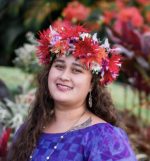
Lisiane Messine who hails from the beautiful island of Aitutaki in the Cook Islands, is a dedicated professional with extensive experience in Correction Services, specializing in rehabilitating and reintegrating at-risk individuals into society. She has volunteered for over a decade with the Cook Islands Family Welfare Association (CIFWA), focusing on Youth Peer Education for Sexual Reproductive Health and Rights (SRHR). Currently serving as a Senior Social Worker at the Ministry of Internal Affairs, Cook Islands. Lisiane passionately advocates for children’s well-being. She remains committed to create a more inclusive and compassionate society, ensuring that vulnerable populations receive the support they need to thrive at their full potential.
A Cook Islands proverbs that has been passed down by her ancestors “Aaere marie e aku potiki, kia kite koe ia ngaina Potea” which translates to “Tread carefully my child, in order for you to experience the richness of the world.
Youth justice in the Cook Islands:
In the Cook Islands we value the importance of family and community relationships, further acknowledging that children are the greatest gifts in life. So as the gift of being parents, which grants you an opportunity to rear your children in love and righteousness, ensuring that they are equipped with the tools and values to make good decisions in life.
However, we noticed that young people do fall short of these values, due to being exposed to any forms of abuse during their upbringing. As a result, they lose their sense of belonging in Society and purpose in life. Hence why they normalize being in an unhealthy and abusive environment, oppose to a loving and caring home where there is order.
In saying that, the youth justice system in the Cook Islands operates within a framework that emphasizes the care and protection of children, rehabilitation, community involvement, and culturally sensitive approaches.
Harmony Moki
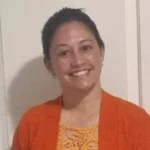
Kia ora, my name is Harmony Moki, and I am from Aotearoa. I am currently completing my Master’s thesis, which explores the lived experiences in Aotearoa youth justice residences (like juvenile detention centres), from the perspective of Rangatahi (young person/s) with Fetal Alcohol Spectrum Disorder (FASD). I am also part of a large research team, partnering with Oranga Tamariki – Ministry for Children, and funded by the Health Research Council. We intend to assess rangatahi in youth justice residences for FASD and other neuro-disabilities. This is the first study of its kind in Aotearoa, and we envisage it will be beneficial for the rangatahi, their whanau (family), and dedicated kaimahi (workers/staff/employees) navigating the complex, and challenging behaviours often associated with neuro-disabilities.
My passion for FASD stems from the experiences of my brothers, whose journeys are marked by suspected and confirmed FASD. Further fuelling this passion is my experience as a youth worker in a bespoke residential facility for rangatahi with FASD. I have witnessed these rangatahi face a myriad of challenges they often navigate with resilience, determination, and support, or lack thereof. Diving deeper into the field of FASD, I uncovered the common trajectory that often sees young individuals marching towards prison.
Grateful for the opportunity to present, at the “Prevention not Detention” conference, I aim to shed light on some of the challenges faced by rangatahi with FASD in Aotearoa, and also their whanau. Recognising the current lack of support in Aotearoa, I hope to contribute to both community education, and collectively supporting rangatahi with FASD to steer clear of justice involvement. Global research shows a disheartening overrepresentation of Indigenous communities in various negative statistics. The pattern of progression often includes state care, to non-attendance at school, to youth offending, to adult prison. Further impacting our Indigenous communities is that rangatahi are 9.5 times more likely to end up in prison if they have had a parent in prison, compared to those who haven’t. Despite this reality, we continue to apply a Western approach to mitigate these statistics.
I will present a Kaupapa Māori approach to engaging with rangatahi within justice settings, and their whanau. This approach is grounded in fundamental principles, including the principle of Whanau which underpins Māori culture and is an essential element in Māori society. Māori academic, Hinemoa Elder, says these cultural principles have empowering potential for anybody who assumes them. A Kaupapa Māori approach is inclusive, collaborative, respectful, and empowering. It recognizes the importance of whanau, communities, cultural identity, and more, when nurturing Prevention not Detention
Binnie O'Dwyer
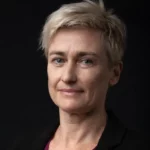
Binnie is a criminal defence solicitor at the Aboriginal Legal Service. She began practicing law in 2015 after completing a double Law/Indigenous Studies degree at Southern Cross University. She currently manages the Children’s Court Practice in the Lismore office, which covers Courts at Lismore, Casino, Ballina and Tweed Heads and also appears in the Local and District Courts for adults.
Prior to being a lawyer, Binnie was an activist and worked with Aboriginal people trying to protect cultural heritage and sacred sites from mining and other development. She has also been involved with the environment movement, and has volunteered with Friends of the Earth, Lock the Gate and local community groups campaigning on climate change, old growth forest logging and Indigenous rights.
Community activism has given her the groundwork to come into criminal practice with a passion for justice and an understanding of the need for Aboriginal people to have a voice within the legal system. Living in the same town for many years has also enabled her to develop relationships within the Aboriginal community which assists in the work she does, particularly with young people.
Originally from Aotearoa but settled in Australia since 1981, Binnie has been a Lismore local for the last 25 years. She lives with her two teenage children and likes to garden and read novels in her spare time.
Perspectives from the coalface:
In this presentation I give an overview of the Aboriginal Legal Service and set out the factors which lead to young people coming into contact with the criminal justice system and what that contact looks like, as well as explore the complexities and gaps in the system which contribute to Aboriginal and Torres Strait Islander young people being over-represented at every stage of the process.
Darlene Olsen

Darlene is a proud Anaiwan woman who is a motivated and committed professional with an extensive background in community development and facilitation roles across the public and private sector.
She specializes in Indigenous community engagement, facilitation and family dispute resolution and family support. Darlene is a family group conferencing specialist in high demand amongst Aboriginal families across NSW known for her empathetic, yet practical approach to problem solving, advocacy and support and working through issues. Darlene is also an experienced mentor, trainer and a qualified Life Coach.
Darlene demonstrates a comprehensive understanding of issues underpinning the provision of community services and maintains high level consultative and negotiation skills, cultural sensitivity and respect for diversity.
Darlene will be acting as MC at the Youth Justice 24 conference.
Vanessa Spiller
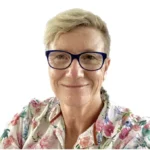
Dr. Vanessa Spiller is an accomplished Clinical Psychologist with an unwavering commitment to advocating for the needs of individuals impacted by Fetal Alcohol Spectrum Disorder (FASD) and other brain-based differences. With over 20 years of clinical experience, Dr. Spiller has become a leading voice in FASD education and interventions across Australia and overseas.
Equipped with a Masters and PhD in Psychology, Dr. Spiller combines evidence-based approaches with practice-based evidence to offer comprehensive educational programs about FASD as well as therapeutic interventions. Her expertise lies in working collaboratively with organisations, families and people impacted by FASD, ensuring they receive the support and services required to navigate their disability and build on their strengths.
Dr Spiller has published multiple articles on the intersection of FASD with criminal justice systems and how brain-based difficulties can impact at every step of the process. She is also the author of “Explained by Brain: The FASD workbook for parents, carers and educators” and has produced online resources that have been downloaded thousands of times and translated into multiple languages
Impaired Brain Functioning and Vulnerability
Individuals with brain-based differences, such as FASD, are at increased risk of involvement with the criminal justice system for brain-based reasons. The severe impairments they carry across their lifespan in areas such as executive functioning, problem-solving, and emotional regulation make them vulnerable to being both offenders and victims of crime in specific ways. These same areas of impairment impact the interventions they will benefit from and how they will need to be delivered. In particular, I will discuss exercise as a specific intervention and modality to develop skills.
In this presentation, I will discuss:
• brain-based impairments that increase vulnerability to criminal offending and victimisation
• how brain-based impairments impact on the suitability of interventions
• using ability mapping to understand and predict risk
• using the “levels of functioning” concept to plan interventions and supports
• exercise as a specific intervention modality
Christian Whalen
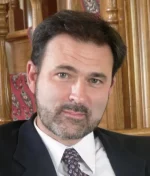
Adjunct Professor at the University of New Brunswick law faculty and former Child and Youth Advocate for New Brunswick, Christian Whalen is a native of Fredericton. He holds degrees from Carleton University (BA ’87); the University of New Brunswick (LLB ’89) and from the Université de Strasbourg III (D.E.A. ’92). Following his call to the bar, Christian worked as a lawyer in private practice and as legal counsel to the New Brunswick Human Rights Commission.
He served as Acting Child and Youth Advocate for New Brunswick from April 1, 2011, to August 1, 2013, and as Deputy Advocate from 2013 to 2023. In 2014 he received the Children’s Rights Champion Award from the Canadian Coalition for the Rights of Children and in 2015 was awarded the John Tait Award for distinguished service as public sector counsel by the national Canadian Bar Association.
Since 2019 he has been a Board member with CANFASD, a Canadian national research network for Fetal Alcohol Spectrum Disorder. His research interests are in youth mental health, youth criminal justice, child rights implementation and monitoring of child well-being.
A Child Rights informed Approach to Youth Justice
This presentation will present the guidance available to State Parties to the UN Convention on the Rights of the Child, in relation to implementation of Article 40 of the Convention and the child’s right to a separate system of criminal justice administration. The presentation will seek to give abroad overview of child rights and how it impacts the administration of penal laws below and above the minimum age of criminal responsibility.
Particular focus will be upon General Comment 24 of the Committee on the rights of the child and what it requires in relation to prosecutions and enforcement of penal laws in relation to children with neurodevelopmental delay. The presentation will touch upon how these global treaty obligations are being implemented in Canada and particularly in New Brunswick through the development of child friendly justice standards.
Jacqui Yoxall
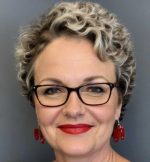
Jacqui is an adoptive mother to a teenage daughter with Fetal Alcohol Spectrum Disorder (FASD) and has become a strong and passionate advocate for her daughter and others living with FASD. She has practiced as a registered psychologist for 29 years and as an academic for 15 years. Currently, she balances her family life, private psychology practice, and her role as Associate Professor and Chair of Discipline for Psychological and Social Health at a regional university. Jacqui’s extensive experience spans acute and community mental health, rehabilitation, aged care, organizational consultancy, and private practice, with a primary interest in human response to trauma. For over 20 years, she has worked with offenders across the lifespan, gaining insights into the complexities of FASD in the legal system. Her goal is to support her daughter and others with FASD in achieving an optimal quality of life and happiness.
Balancing Many Hats – Life as a Psychologist, Educator, Researcher, and Mother of a Child with FASD
In this talk, Jacqui discusses the ongoing learning process of balancing her roles as a psychologist, educator, researcher, and mother of a child with Fetal Alcohol Spectrum Disorder (FASD). She candidly shares that, despite her professional background and experience and access to research, she does not often have the answers and faces significant challenges in her advocacy efforts. Jacqui explores the difficulties of navigating the education system and heath system, where stigma and or a lack of understanding about FASD often leads to misunderstandings and challenges due to the ‘invisibility’ of FASD. Jacqui reflects on her struggles to overcome these obstacles and fight for her child’s rights. She discusses how these experiences have shaped her approach to supporting her daughter and advocating for better FASD awareness and accommodations.